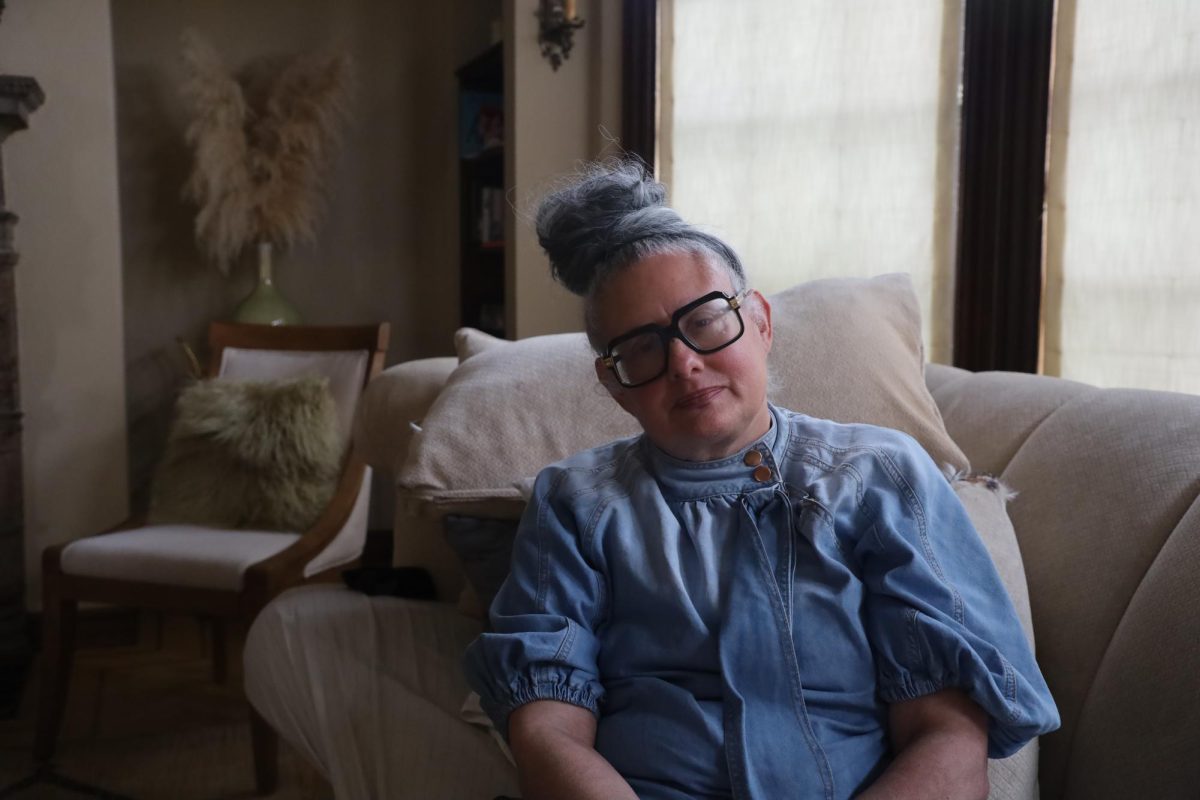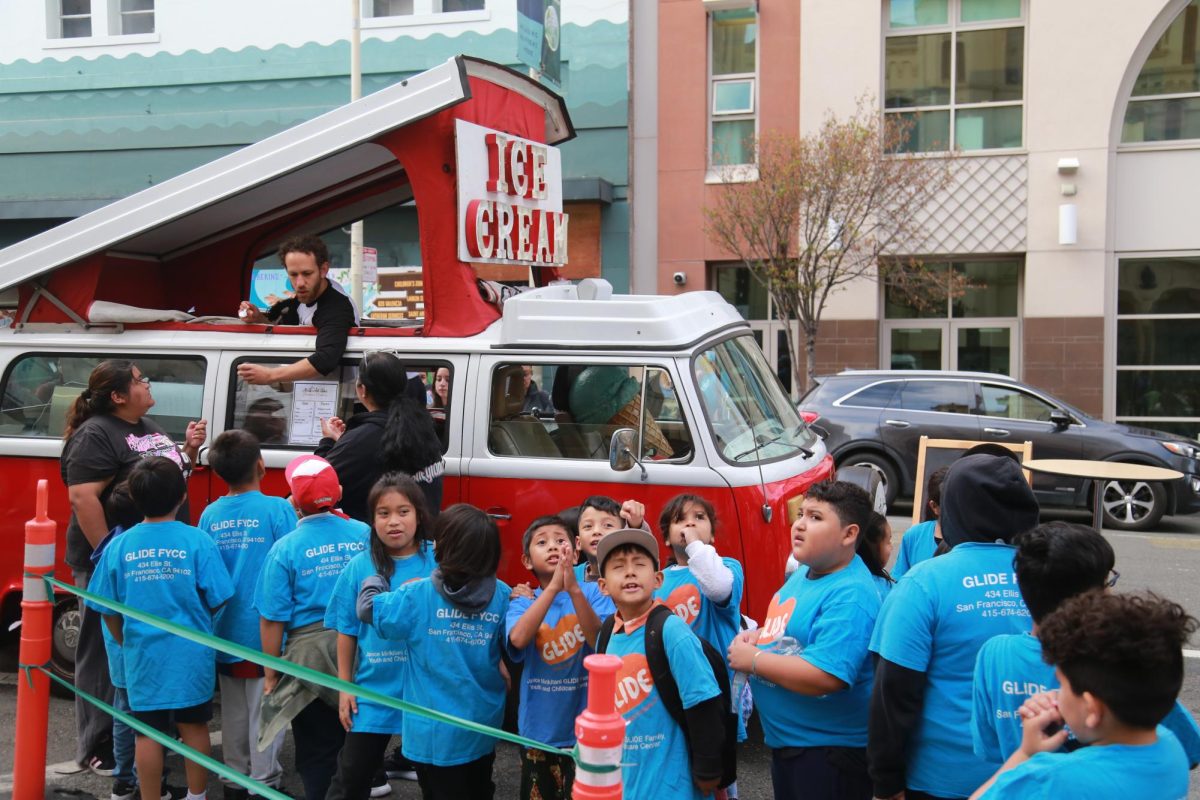SF State students battle the high cost of living and tuition by picking up trades in order to earn high wages in pursuit for higher education.
“Welcome to Taco Bell, what will you be having today?”
This is the scripted phrase Rachel Prince had to repeat over fifty times on her first day on the job.
Prince got her job at Taco Bell after she was forced to give up her cozy cashier job at SF State’s lobby shop when she was no longer able to afford her $704 room at a University Park North apartment. In just the two years of living there, Prince’s household experienced a $41 rent increase.
“We all had a difficult time with the increase,” she says about her roommates when they decided to end their lease to find more affordable living situations.
Prince packed her bags and made the forty-mile trek to Mountain View where she was able to score a room at half the cost where her older sister was living.
The move came with some sacrifices for the SF State junior. No longer being able to keep up with car payments, Prince had to trade in her Acura for a low-maintenance bicycle. This made trips to campus more difficult, resulting in her adding more online courses to her schedule. The most difficult change was the pay-cut that brought her hourly wage down from $10.74 that she earned at SF State’s Lobby Shop to $9 at a Mountain View Taco Bell.“It sucks. If I ever seem like I don’t want to be there, I can get fired. My boss just fired someone ‘cause they didn’t want to say the whole script,” Rachel says.
Although San Francisco holds the highest minimum wage in the nation most students do not even have the luxury to live close enough to the city to earn this wage. These low incomes make it difficult for young adults to finish school as they juggle high costs of living and an average tuition of $3,234 for SF State’s full-time undergraduate program.
Victoria Salazar, an SF State senior, was going through the same ordeal with her low-paying part-time hostess position at a local restaurant where she struggled to make ends meet.
Apart from her full course load at SF State where she was taking anywhere from fifteen to twenty units, Salazar worked evenings and ten- to eleven-hour shifts every weekend. She was already $15,000 in debt in school loans and knew she had to come up with a plan to make more money in order to be able to afford to finish her degree at SF State.
Salazar chose to enroll in the College of San Mateo’s cosmetology program due to the short timeframe of the program and its affordability. She was able to pay for the program with money raised from her hostess job, and she avoided taking out additional loans. For thirteen months—the duration of the program—she balanced lessons in cosmetology from 8 a.m. to 5 p.m. Monday through Friday, and worked her part-time job as a hostess on evenings and weekends, all while still managing to remain enrolled at SF State by taking nine units of online courses.
“It was really hard and extremely time consuming,” she remembers. “Sometimes I would break down and say, ‘Oh my god I am so tired; I just want to sleep and live a normal life,’” she says.
In order to survive, Salazar continued to remind herself of her goal of obtaining a degree in social work. She now hopes that with the degree she is working toward she can get a job counseling at a homeless shelter or work with kids to aid them during their development.
She initially joined the cosmetology program to just learn the basics of the trade and be able to make money quickly. And although the process to obtain her license in cosmetology set her back a year at SF State, she has now fallen in love with hair and makeup.
“Yesterday, I spent six hours doing hair in my apartment, but I didn’t get tired because it’s something I love to do,” Salazar says
She finished the program one month ago and received her license in the mail three weeks ago. Salazar began looking for employment right away, but has yet to find a place to begin using her new skills.
“A lot of the places aren’t looking to hire, or they’re looking to pay the absolute minimum,” she says.
She is happy to know she now has a back-up in the event that her plans for social work do not work out, and although the journey was exhausting, picking up a trade was essential to have the money she needed to pay for her SF State tuition and is scheduled to graduate in 2015.
In a similar story, Sandra Maxwell dropped out of college after her first year at the University of New Mexico after her grandmother’s death. She was inspired to learn and pick up the massage therapy trade as a tribute to her grandmother who worked as a body healer.
Maxwell had grown up in a holistic household and was introduced to alternative medicine at an early age, therefore pursuing a career as a healer was a no-brainer. She moved to San Francisco and began to study massage at the World School of Massage and Holistic Healing. Maxwell eventually received her license from the National Holistic Institute of San Francisco. After working in the trade for seven years, she decided to go back to school to get her bachelor’s degree by first attending City College of San Francisco and finally ending up at SF State.
Maxwell describes the learning process at massage school as very different from what she sees as more traditional teaching methods at SF State.
“Massage therapy has a learning technique that is both physical and social, with great emphasis on hands-on training,” she says. “Massage school doesn’t require as much work or study time outside of the hours spent in the program.” Learning a trade and being able to earn over $50 per hour before fully submitting to a bachelor’s program helped Maxwell not only pay for school—it also helped her afford living in San Francisco.
“Sure, I’m busier than many of my classmates, but I love my trade. I don’t know if many of my classmates can say that they love their current job,” she says about massage therapy.
As Prince rings up crunchy tacos, she remembers her Google search of makeup certification programs at Marinello School of Beauty earlier in the day and is reminded of the perils that many undergraduate students go through as they struggle to earn their degree as they work minimum wage jobs. She hopes that picking up a trade can lighten her workload while she focuses on obtaining her Bachelor’s degree.









